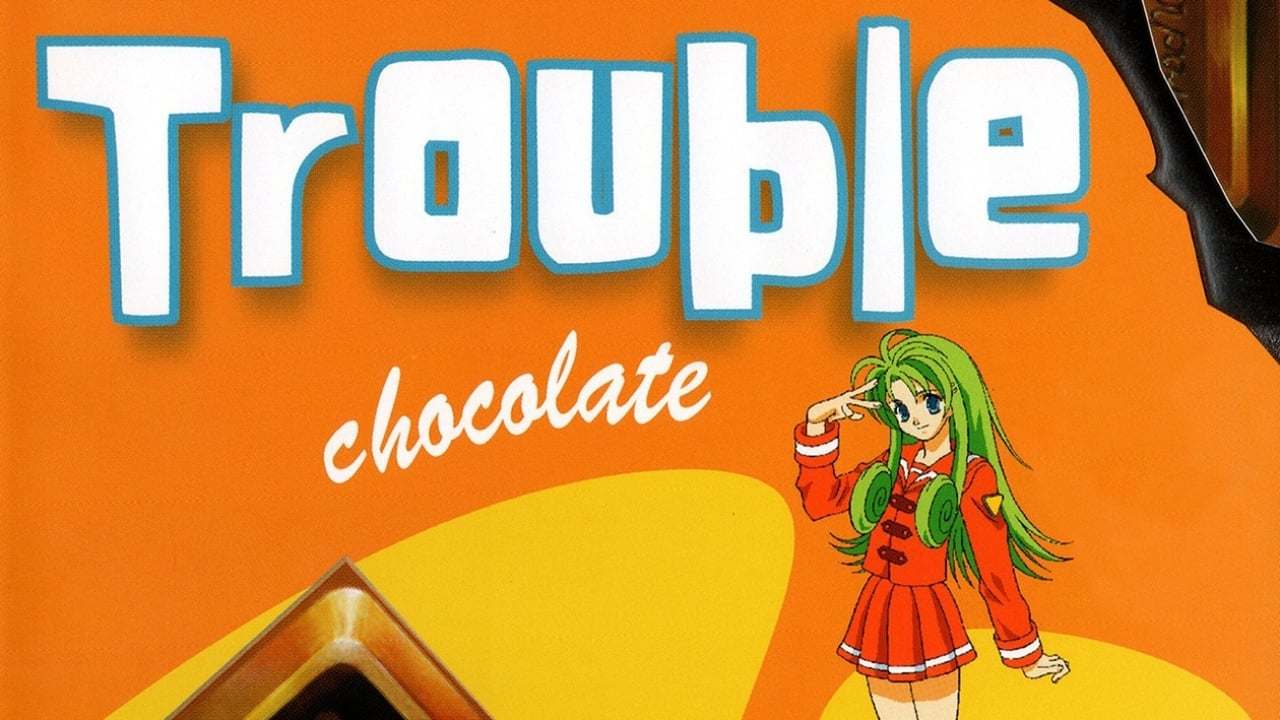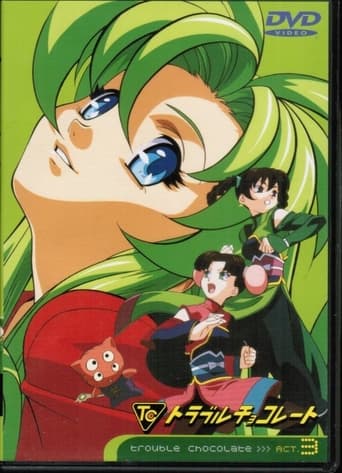Trouble Chocolate (1999)
Trouble Chocolate
1999
Trouble Chocolate is a comedy anime produced by AIC in 1999 and is licensed in the United States by Viz Media. The series features Cacao, a student at Micro-Grand Academy studying magic. One day, while his magic class teacher, Ghana, is performing a spell to summon a tree spirit, Cacao finds and eats some chocolate, which turns out to be 200 year old magical chocolate. After eating the chocolate he becomes drunk and causes a wreck. During this, he interferes with Ghana's spell, letting the spirit, Hinano, escape. She inhabits the body of a marionette, who then moves in with Cacao. Subsequent episodes of Trouble Chocolate have little connected storyline. Rather, the show is a parody of other anime. For example, two other characters, Murakata and Deborah, are constantly shown professing their love to each other, set to absurdly explosive special effects and backdrops, as is common in many anime. The dubbed dialogue in Trouble Chocolate often bears little or no resemblance to the original script, as opposed to the normal convention of translating the words as directly as the change in lip-sync will allow.
Seasons & Episode
Trouble Chocolate is a comedy anime produced by AIC in 1999 and is licensed in the United States by Viz Media. The series features Cacao, a student at Micro-Grand Academy studying magic. One day, while his magic class teacher, Ghana, is performing a spell to summon a tree spirit, Cacao finds and eats some chocolate, which turns out to be 200 year old magical chocolate. After eating the chocolate he becomes drunk and causes a wreck. During this, he interferes with Ghana's spell, letting the spirit, Hinano, escape. She inhabits the body of a marionette, who then moves in with Cacao. Subsequent episodes of Trouble Chocolate have little connected storyline. Rather, the show is a parody of other anime. For example, two other characters, Murakata and Deborah, are constantly shown professing their love to each other, set to absurdly explosive special effects and backdrops, as is common in many anime. The dubbed dialogue in Trouble Chocolate often bears little or no resemblance to the original script, as opposed to the normal convention of translating the words as directly as the change in lip-sync will allow.
Watch Trailer
Free Trial Channels























